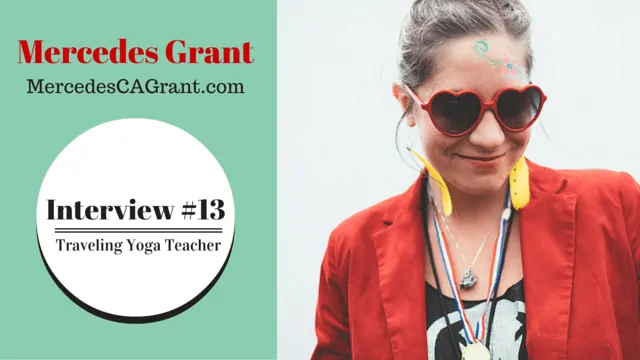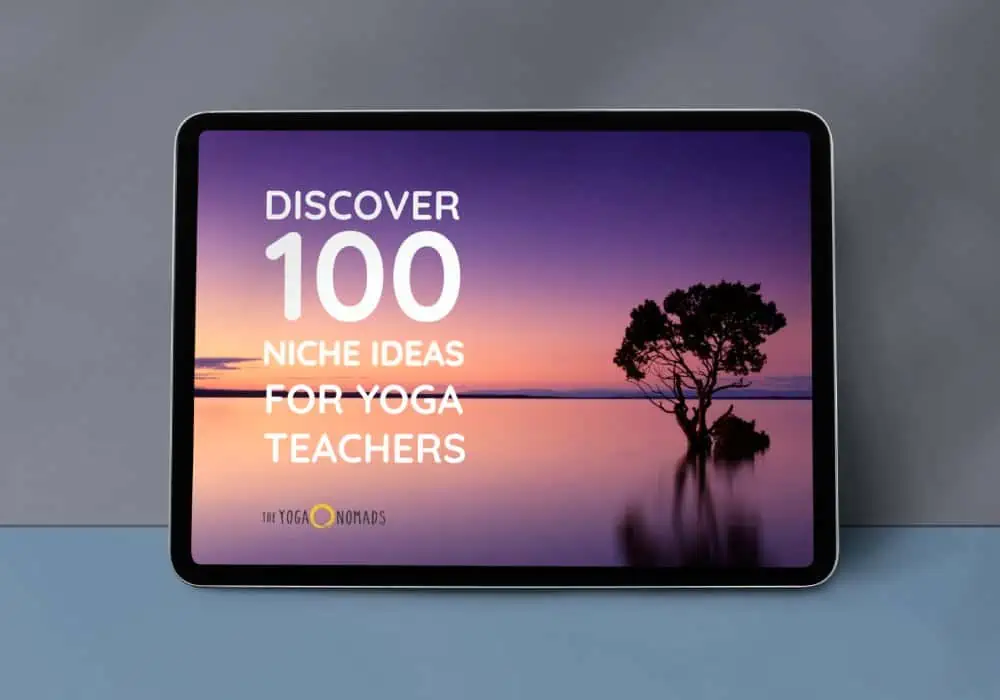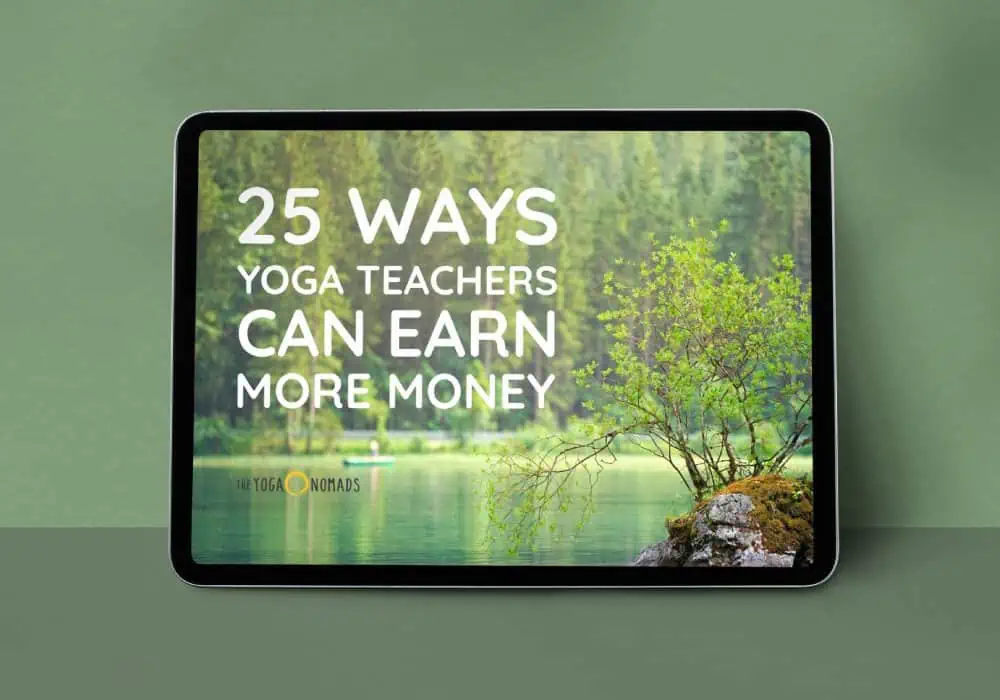This is part 13 of our traveling yoga teacher interview series. Each Wednesday we will release a new interview of a different traveling yoga teacher. If you know someone who would be a good candidate – email us at TheYogaNomads@gmail.com.
—
Mercedes is a self-taught yogi who came across yoga in an effort to help treat depression and an eating disorder. Her personal journey through addiction has helped her become a healing yoga instructor helping others through similar journeys. Read on to discover what makes her offering so unique and where you can get in on the fun!
Reminder: Comment below with additional questions for Mercedes!
You are initially a self-taught yogi. Explain the story of how yoga became so crucial in your own healing journey.
I was first exposed to yoga by a psychologist who suggested it as a complementary therapy for clinical depression and an eating disorder, in my late teens. I can hardly believe it’s been this long, but at the time, there were no yoga studios near me so I rented books from the local library and set up a tiny space in the basement room of my parent’s home. It was about 2 feet by 5 feet. I would close the door, light candles and put on calming, classical music. I didn’t know much about flowing through the poses, so I chose ones that interested me, and practiced them. That time and space I devoted was easily the kindest action I was taking for myself. My parents were instructed not to interrupt me, and I was able to just be and feel or just lay in savasana and cry. I honestly can’t recall now how long I carried on with this practice but there was a large gap of years where I went without it.
It wasn’t until many moons later that I re-discovered my practice again, when I moved to Vancouver and even then, it was sporadic. 2 ½ years ago I was working 80 hours/week in the film and media industry, hardly functioning as a human. Living off of fumes, coffee and cigarettes and suppressing years of grief and PTSD, I hit a wall and a voice in me kept creeping in and saying, “You can’t live like this anymore…enough.” It was right, and I finally listened, succumbing to total burn-out. I was practicing yoga on and off at a studio called Karma Teachers in Vancouver, and they were offering an inaugural yoga teacher training program with scholarship opps. Every time I signed onto Facebook, a post would come up about the program, so I took the sign and called the founder, Emerson and just said, “I have to do this.” I had no expectations of teaching or anything else, but I knew that it was the step I needed to take. It was a first and crucial step to acknowledging the deep pain I was in and to begin to really open my heart to healing.
Contents
- 1 It was a first and crucial step to acknowledging the deep pain I was in and to begin to really open my heart to healing.
- 2 Healing was and is (finally!) at the top of my priority list!
- 3 Find your niche, your passion and expand your knowledge.
- 4 As a society, we have become separated from our essence as spiritual beings.
It was a first and crucial step to acknowledging the deep pain I was in and to begin to really open my heart to healing.
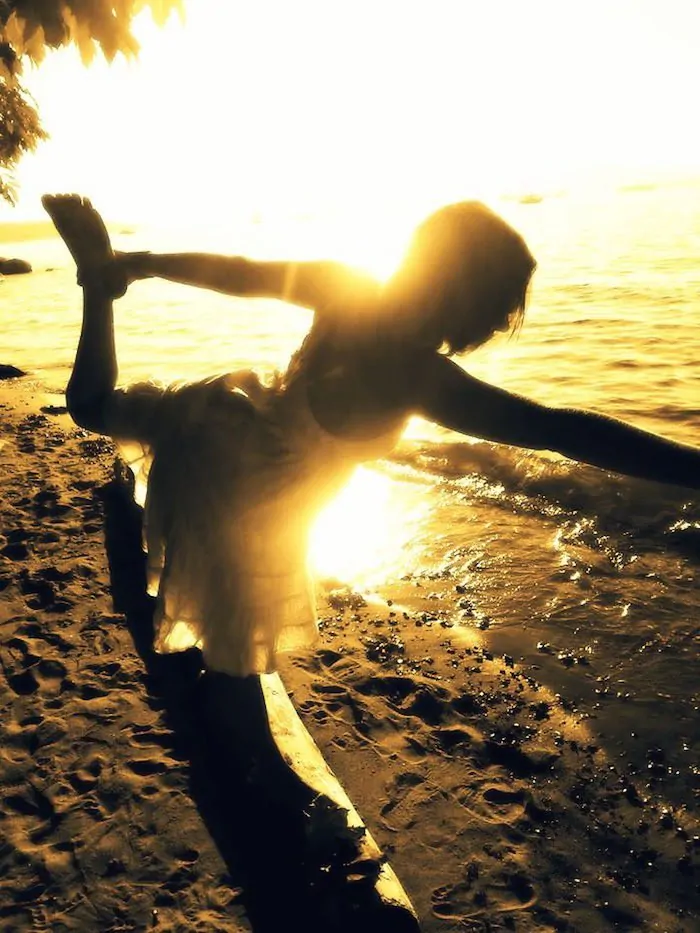
How did you select the training programs that you’ve completed?
I feel as if my initial 200-hour training at Karma Teachers chose ME! Having practiced within the community at Karma, it was a space I felt truly comfortable and authentic. I also very much appreciated the studio’s completely open and inclusive vibe, offering scholarships, and making the training affordable and accessible. I began teaching a Karma right after my training, twice per week and followed that up with a mentorship program with a wonderful, brilliant, badass Goddess, Shannon Cluff, in Vancouver. I resonated with her as a woman, and with her business-ethic and approach to the physical practice. She is always staying ahead of the curve with the science behind yoga.
Concurrently, I was presented with the opportunity to participate in a revolutionary addictions-recovery program called “Beyond Addiction: The Yogic Path to Recovery” with renowned addictions recovery specialist Dr. Gabor Mate and Kundalini yoga instructor and Naturopathic Doctor, Sat Dharam Kaur. The program spanned over a period of 4 months. Each month we met as a group over an intensive weekend. My “pitta” Dosha constitution is pretty apparent here…I have a tendency to really throw myself into everything I do, and healing was and is (finally!) at the top of my priority list. The Beyond Addiction program was a huge step for me in acknowledging my own addictive patterns, present in smoking, drug use and alcohol abuse – I was using these substances to numb the pain, grief, loss and PTSD. I was very raw during this process. The program was incredibly effective for me personally, and the teachings inspired me to create the program I am currently offering, “Re/Framing Addiction with Ayurvedic Yoga Therapy.”
Healing was and is (finally!) at the top of my priority list!
Last year I found myself attracted to a program in Ajijic, Mexico with an organization called Yoga Veda. They were offering a 300-hour training in Ayurvedic Yoga Therapy. I did a lot of research into where I wanted to put my energy and money, and after speaking to Jacky Rae, owner of Yoga Veda, I knew it was something I wanted to be a part of. Vancouver offered me amazing resources and access to fantastic teachers, but a nagging, crucial piece was missing for me: support of my own path without the under- pinnings of competition. I was also fostering a fascination with Ayurvedic medicine as a “sister science” to yoga and wanting to expand upon my knowledge. I found this with the teachers and fellow trainees with Yoga Veda, and they continue to support me as I venture into hosting my first international retreat in Mexico this June!
My most recent training was with Yoga Outreach in Vancouver for an 18-hour trauma-sensitive training. I saw this training as necessary for the work I am currently doing with addictions-recovery. It really opened my eyes to my own trauma and in handling varying clients with trauma-related conditions. We are all suffering from trauma in one way or another and being able to recognize it brings a whole other level of compassion and sensitivity to interactions with others.
Check out Yoga Sequences for Addiction
What Ayurvedic practices do you find most useful and why?
I found it personally enlightening to discover my Ayurvedic constitution and then to be able to apply that knowledge to my daily routine. The practice of daily pranayama (breathing techniques) and meditation has also had a profound impact on how I carry myself throughout my life. Stress is much more manageable and I can feel a difference in my mental clarity and stability even with a few minutes of practice each day. I definitely notice the difference when I don’t practice this routine (and I’m sure everyone else does too!!!). I’m prone to a “vata” imbalance, with anxiety and worry. Breathing and meditation help me keep it together. 😉
25 Ways to Supercharge Your Yoga Practice
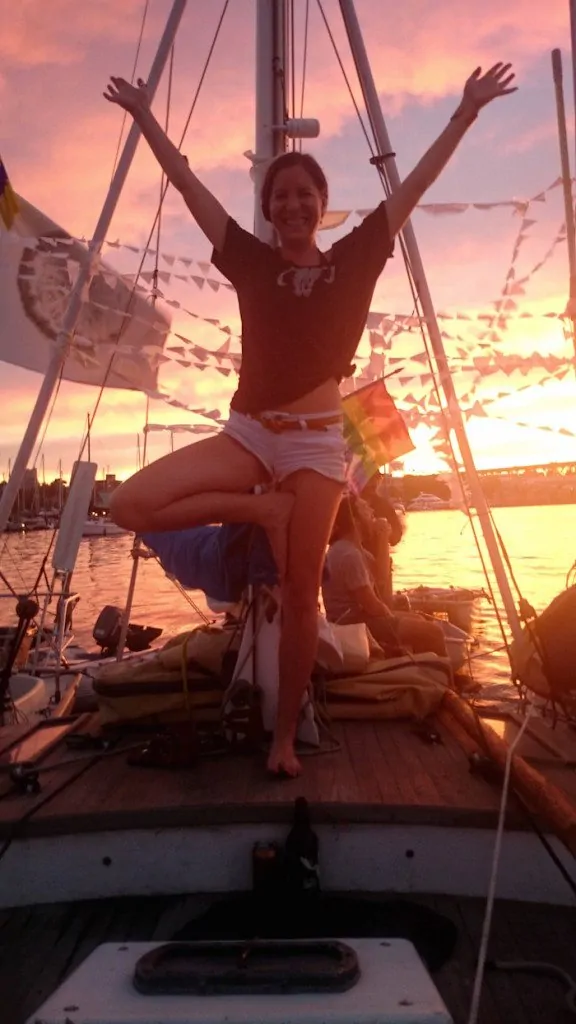
How do you select destinations for retreats?
I am very fortunate to have the support of my teachers in Ajijic, Mexico, where I took my 300-hour training in Ayurvedic Yoga Therapy. While I was there, they really encouraged me to expand upon my offerings with addiction-recovery and trauma-recovery with yoga and shared a very special location where I’ll be hosting my first international retreat, “Re/Framing Addiction with Ayurvedic Yoga Therapy.” It will be at Monte Coxala Wellness Centre just outside of Ajijic in Jalisco state, Mexico. I’m not really keen on “retreat centres” but this place is really magical. They’ve designed it to reflect traditional Meso-American culture. They also offer traditional Mexican ceremonies such as the temazcal, or sweat lodge, something I took part in while I was there. The experience was very healing, and connected me to the culture and traditions of the region. I’ve always had a love of Mexico for its incredible cultural and environmental diversity. The people are always up for a celebration and they really know how to embrace life! I am excited to expose people to this special region of the country.
Free download: 100 Niche Ideas for Yoga Teachers
Download now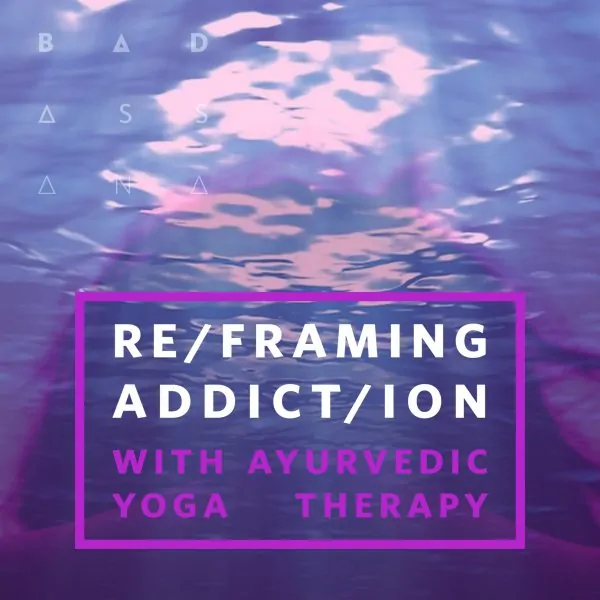
What is your best advice to new and emerging yoga instructors?
I would definitely say to start teaching as soon as you get out of training. You are likely going to be uncomfortable, nervous and fearful but the longer you wait to get out there, the more challenging it can be. It can be tricky to get into studios teaching as a newbie, so start by offering “karma” (free/by-donation) classes to your local community. I would also recommend continuing education: soak it up! Find your niche, your passion and expand your knowledge. The more you know, the more you have to share. Lastly, take it easy on yourself! I know a lot of teachers who burn-out of teaching really early on and it is such a shame to see this happen. They teach 10 or more classes a day just to sustain themselves financially and it becomes just like any other “job”. Find time for self-care.
Find your niche, your passion and expand your knowledge.
In a saturated teaching landscape, how do you market yourself online and what strategies have helped you the most?
Good question! It is an on-going challenge. Putting an emphasis on my passion, which is now my “niche”, addictions-recovery and Ayurvedic Yoga Therapy, has helped me to focus my attention on networks that have a need for what I do. Also, finding my voice as “Badassana” and creating a brand around that voice has been a powerful tool in attracting an audience who will resonate with my work. Thus far I have found Facebook to be the most effective for marketing. I’m venturing into writing blogs/articles for other sites also and I’d really like to connect my audience with my website and begin email subscription marketing. My background is in writing, doc filmmaking and social entrepreneurship, and I am keen to connect these skills with my current focus on yoga for addictions-recovery and trauma.
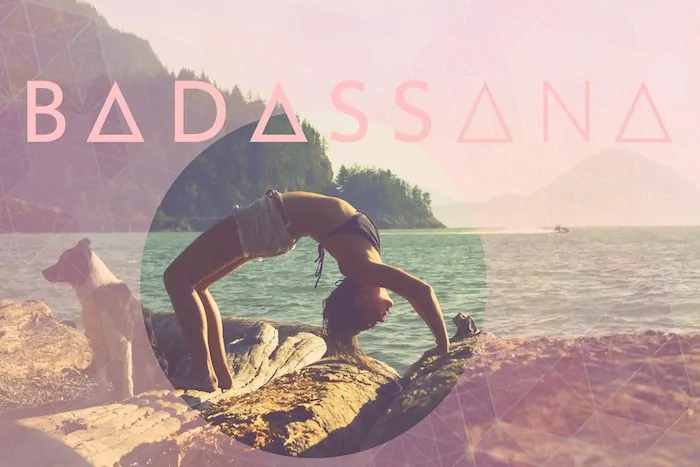
Can you tell us more about more about using Ayurvedic Yoga Therapy for addictions-recovery?
The reality is that we all have addictive tendencies, and while some may appear more extreme than others, this is simply beside the point: As a society, we have become separated from our essence as spiritual beings. We have lost sight of the idea that we are spiritual beings having a human experience. As spiritual beings, we cannot survive wholly without human connection, love, compassion and understanding, and when this need is not met, when there is a lack, or a hole, or an emptiness, we strive to fill that hole, sometimes at the great cost of our own lives and the lives of others. We fill the emptiness with drugs, alcohol, toxic relationships, video games, the internet, television, food and consumerism. We must begin to ask a new question, posed by modern addictions-recovery specialist, Dr. Gabor Mate: Not why the addiction, but why the pain?
As a society, we have become separated from our essence as spiritual beings.
Re-framing our understanding of addiction in this way can begin to shed light on how we view and treat the addicted human, and most importantly, in how we can begin to move forward with providing a compassionate and dignified space for healing. In short, we can understand addictions as a coping mechanism for an over-taxed stress-response. When we are constantly striving to keep up and get ahead, we are in a hyper-active state of “fight or flight”, an activation of the sympathetic nervous system which produces chemicals including cortisol and adrenalin. These chemicals are useful when we are actually under severe, life-threatening conditions, but when we are not, and our bodies are still continuing to produce these chemicals in high doses, it creates an imbalance in our systems, altering the natural homeostasis that exists to keep our body-mind connection in balance. This imbalance leads us to find something, an external source to lean on: alcohol and cigarettes to “calm the nerves”, coffee and cocaine for a “pick-me-up”, television for a “distraction” from feeling and observing our emotions, and so on.
So how does the ancient healing wisdom of Ayurveda and yoga fit in with this modern re-frame of addiction? Ayurveda and yoga, often referred to as “Sister Sciences,” are based upon ancient teachings of creating balance within the body, mind and spirit, encouraging a harmonious existence with our Anamaya kosha (physical “sheath”) and the sophisticated intelligence of the natural world with our spiritual selves. The use of Ayurvedic yoga therapy to prevent, treat and heal addictive behaviors makes perfect sense. With the practices of meditation, we learn to observe our thoughts and to be with our emotions as they come up, allowing them to pass through without engaging in reactive tendencies that can cause stress that, as we now understand, can lead to addictive behaviors and a build-up of ama (toxins) in the tissues of the body. Eventually, this toxic build-up can create illness and dis-ease. With pranayama (breathing techniques) and physical yoga forms, we learn to release the accumulated emotional trauma in our bodies, creating new space for healing and a greater understanding of our connections with all living beings. Within Ayurvedic practices, we address the nutritional deficiencies that can coincide with addiction with a new understanding of our physical and mental constitutions and how to support the healing process with diet and cleansing routines. The summation of support on all levels, emotional, spiritual and physical, creates a sophisticated healing system for a loving, gentle, compassionate and effective process to address addictive behaviors.
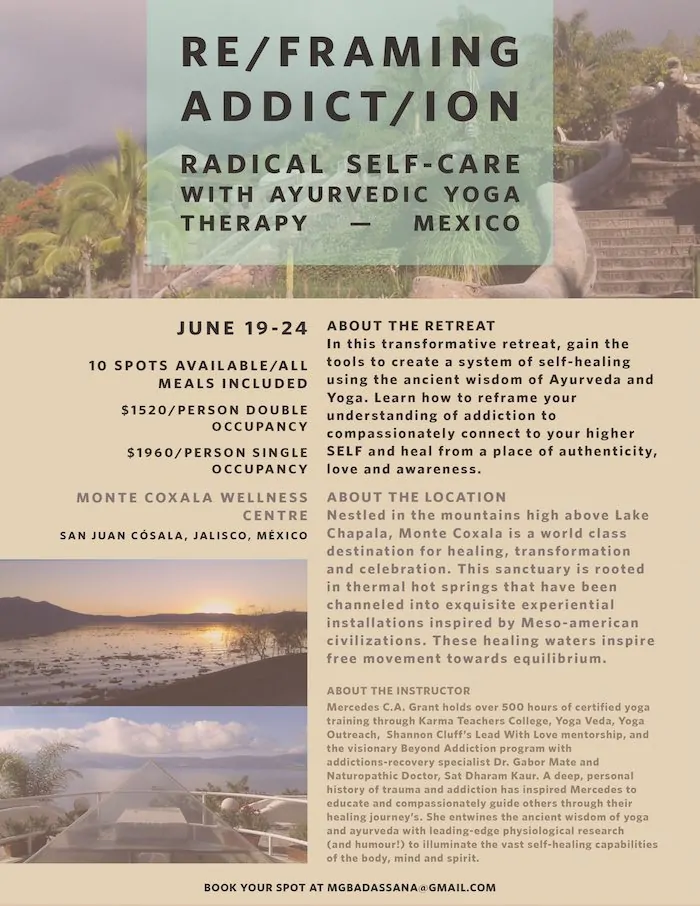
Free download: 25 Ways Yoga Teachers can Earn More Money
Download nowWhat advice would you give your former, pre-yogi self?
To be kinder to myself. I spent a great deal of time and energy on self-abuse and negative self-talk. It all makes sense given my history, and I continue to let go in every moment, but a little bit of self-love can go a long way.
Zombie apocalypse is coming – what’s your technique for survival? 🙂
Ha! Well, I actually spend a fair bit of time contemplating this (I can hear my friends laughing and nodding in agreeance…), which might explain why I am currently living on a re-claimed school bus on a beautiful, remote island off the coast of British Columbia! I’d say my main technique for survival is to surround myself with a resourceful, skilled, and caring community – you can’t survive alone! I like to think this is true of life in general, never mind the zombie apocalypse. 😉
What song could you play on repeat for 24 hours?
Oh gosh! The answer to this could change on a daily basis…I’m a serious music lover and consider finding new tunes to be such a fulfilling part of my life. Music is so healing! When I find new music I actually will listen to it on repeat for 24 hours! So what’s on rotation right now? “To Have You Back” by Tourist, and anything by LCD Soundsystem because they’ve recently announced that they’re coming back together to go on tour and I cannot wait to see them live!
Connect with Mercedes
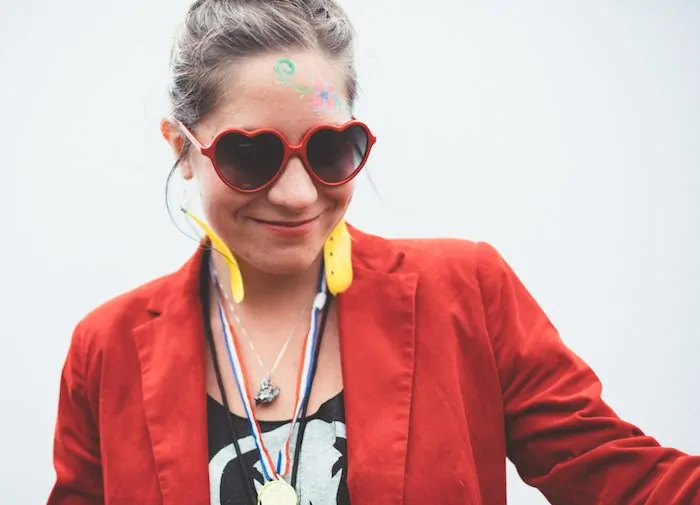
I’m a yoga instructor, healer, social entrepreneur, activist, new media producer, boat-rocker and modern nomad, with a deep well of enthusiasm and reverence for the wilderness and all of the knowledge it holds. I am devoted to creating safe, compassionate environments in which people are allowed the space and freedom to connect with themselves and others, to heal and play. Formally (and, informally), educated in documentary filmmaking, journalism and writing, I’ve also received a 200-hour yoga certification from Karma Teachers College in Vancouver, Canada and a 300-hour Ayurvedic Yoga Therapy certification from Yoga Veda in Ajijic, Mexico. I’ve completed an intensive 4 month addictions-recovery training program with Dr. Gabor Mate and Sat Dharam Kaur, N.D, in addition to a mentorship with renowned yoga educator, Shannon Cluffand most recently, an 18 hour Trauma-Sensitive yoga training with Yoga Outreach, in Vancouver. A deep, personal history of trauma and addiction has inspired me to educate and compassionately guide others through their healing journeys. I’ve discovered combining the ancient wisdom of yoga and Ayurveda with leading-edge physiological research (and humour!) illuminates the vast self-healing capabilities of the body, mind and spirit.
Connect with her on her Website, Facebook and Instagram

